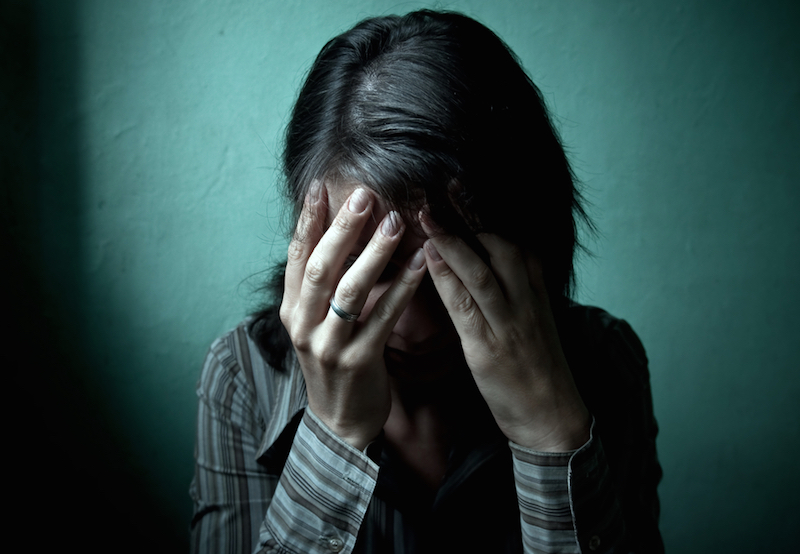Denying Abortion Access May Harm Women's Mental Health

Editor's note: As of August 4, 2022, the constitutional right to abortion has been eliminated in the U.S., following the Supreme Court's decision to overturn Roe v. Wade on June 24, 2022. The following article was published on Dec 15, 2016, and therefore any legal information is no longer accurate.
If women choose to have an abortion, those who are allowed to obtain one may have better mental health outcomes than those who are denied one, according to a new study.
The results of the study cast doubt on the idea that women experience mental health problems due to having an abortion, the researchers said. This idea has been used as a basis for laws in some states that require women to undergo counseling about the supposed negative psychological outcomes from having an abortion before these women obtain such an procedure, the researchers said.
The new results show that denying women an abortion may have more negative effects on their mental health than allowing women to get the abortion, said lead study author M. Antonia Biggs, a researcher of reproductive health at the University of California, San Francisco. [5 Controversial Mental Health Treatments]
The findings also suggest that doctors should provide women who are considering an abortion with the most accurate scientific information to help them make decisions related to their pregnancies, the researchers said.
In the study, the researchers looked at the psychological outcomes in 956 women over five years. These women either underwent an abortion that they wanted or were denied one because their pregnancy was up to three weeks past the time limit on abortions at their clinic. The former group included 273 women who underwent abortions in the first trimester of their pregnancies and 452 women who underwent abortions when their pregnancies were within two weeks under the limit mandated by their clinics.
—Abortion laws by state: https://reproductiverights.org/maps/abortion-laws-by-state/
—For questions about legal rights and self-managed abortion: www.reprolegalhelpline.org
—To find an abortion clinic in the US: www.ineedanA.com
—Miscarriage & Abortion Hotline operated by doctors who can offer expert medical advice: Available online or at 833-246-2632
—To find practical support accessing abortion: www.apiarycollective.org
The researchers interviewed the women to see if having an abortion or being denied the procedure affected the women's mental health. The investigators first interviewed the women about a week after the women either had an abortion or were denied one, and then interviewed them again every six months for five years. During the interviews, the researchers asked the women questions about their demographics, physical and mental health, and history of traumatic life events.
Sign up for the Live Science daily newsletter now
Get the world’s most fascinating discoveries delivered straight to your inbox.
The researchers found that the women who had been denied an abortion had more anxiety symptoms, lower self-esteem and lower levels of life satisfaction during the initial rounds of interviews than those who had undergone abortions, including among those women who were near the limit of when their clinic agreed to perform abortions. [7 Ways Depression Differs in Men and Women]
However, the increased anxiety, lowered self-esteem and decreased life satisfaction in those women who were denied abortion did improve over time. By six months to one year after the start of the study, those measures reached levels that were on average similar to those in women who did have an abortion, the researchers said. This improvement was particularly pronounced in women who eventually miscarried or had an abortion at another facility, the researchers found.
The initial increase in negative psychological symptoms in women who were denied an abortion likely shows the women's reactions to being denied, the researchers said.
Moreover, the researchers found that during the first rounds of interviews in the study, many of these women said they were still trying to obtain an abortion at another facility. The additional stress from having to find and travel to another abortion facility and raise money to pay for the extra travel and the procedure itself may have also contributed to the women's psychological symptoms, said the study, published today (Dec. 14) in the journal JAMA Psychiatry.
This article was updated on August 4, 2022 by Live Science contributor Alice Ball following the Supreme Court's decision to overturn Roe v. Wade on June 24, 2022. This decision eliminated the constitutional right to abortion that was established by the 1973 court case and later affirmed by a 1992 case called Planned Parenthood of Southeastern Pennsylvania v. Casey.










